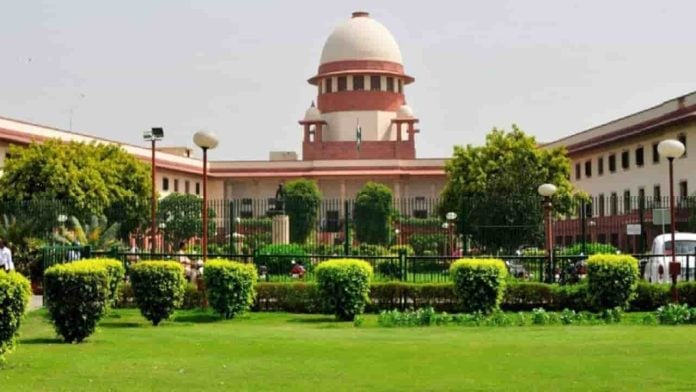The Supreme Court of India has complete refused to entertain petition that was filed by Advocate Ashwini Upadhyay seeking which talked off the uniform age of marriage for men and women.
The petition on the same was listed before a bench comprising Chief Justice DY Chandrachud, Justice PS Narasimha, and Justice JB Pardiwala.
The argument by the petitioner was that the distinction between the age of marriage for men (21 years) and women (18 years) was violation of Articles 14, 15, and 21 of the Constitution.
The advocate Upadhyay had asked for an increase of marriageable age for women to be 21 years, which would be on par with men.
The bench however clarified that the court cannot issue a mandamus for parliament to legislate, and it is a matter to be left to the parliament.The petition was dismissed.
CJI DY Chandrachud said the petition states that age of women for marriage should not be 18, but 21. But it is sstrike down 18, there will be no age at all! Then even 5 year olds could get married.
Advocate Ashwini Upadhyay, said thy this 18 years and 21 years is arbitrary and there is already a legislation being argued in parliament.
Justice PS Narasimha then questioned that if legislation being argued already why has court been approached?”.
The Centre in the year 2001, introduced a bill in the Parliament which was referred to the parliamentary committee for raising the marriageable age for women as 21 years. The bill however is still pending.
Advocate Upadhyay asked the court for adjourning the matter as the petitioners weren’t fully prepared, which was declined by the bench.
CJI DY Chandrachud,giving the order said that petitioner has requested that distinction between age of marriage between men and women is arbitrary and violative of Articles 14, 15, and 21 of Constitution and that the age of the women for marriage should be increased to 21 to be par with men.
The CJI further said that striking down of provision will result in there being no age for marriage for women.
He said what the petitioner seeks is a legislative amendment for which the court cannot issue a mandamus for parliament to legislate.
The Bench under the CJI declined this petition, leaving it open to petitioner to seek appropriate directions.”
Advocate Upadhyay,to put his upmamship said that if it is striked down then the age will automatically become 21 years for everyone…Section 5 of Hindu Marriage Act.
To this,CJI DY Chandrachud asked him for not making mockery of Article 32 and reminded the Advocate that there are some matters which are reserved for the parliament.
The CJI added that we should not perceive that we’re the exclusive custodian of constitution. Parliament is also a custodian.
Upadhyay keeping his final word said if he could be granted liberty to approach the law commission,to which CJI DY Chandrachud remarked that he was free to do so.
He added that the parliament has enough power. We don’t need to tell the Parliament. The Parliament can pass a law on its own


